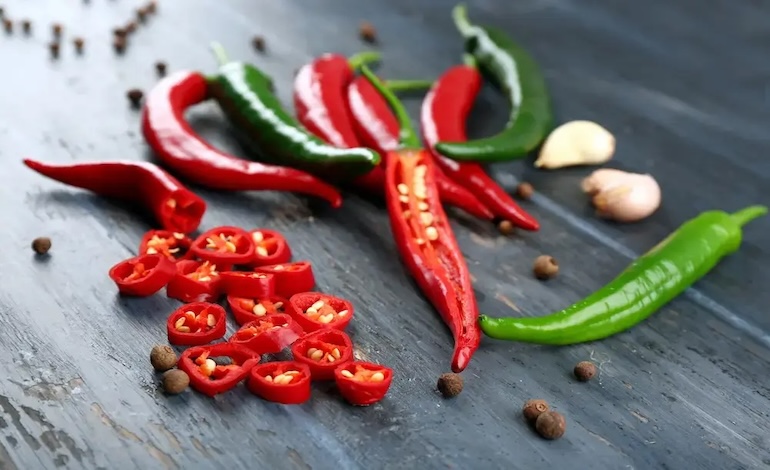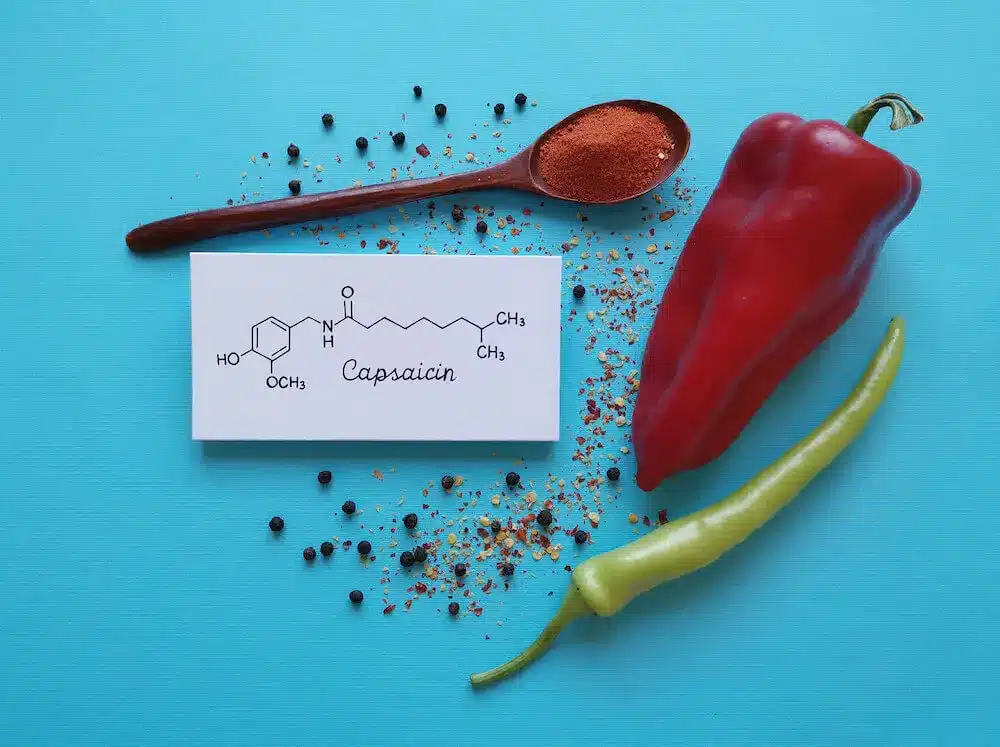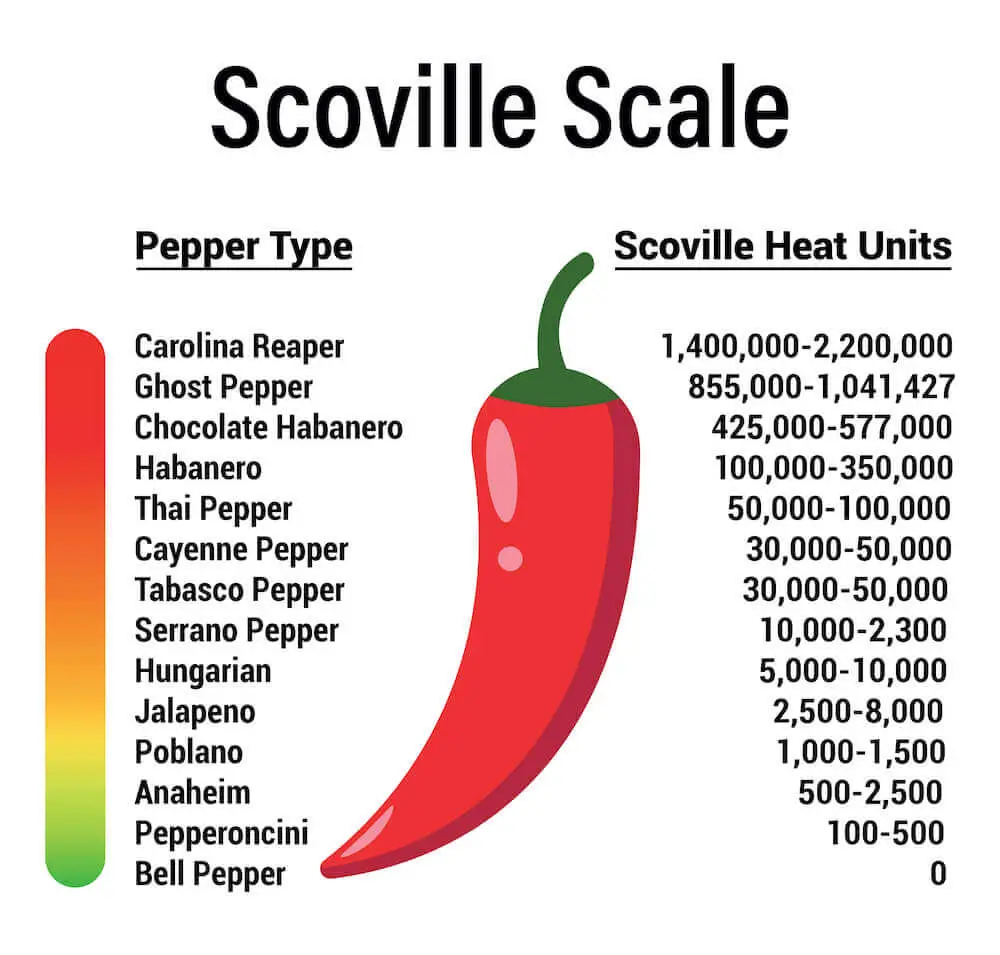Why do people like spicy food?

What makes spicy food taste spicy and delicious? Can spice be dangerous? How do we measure spices and what are the hottest peppers in the world? Why do we like spicy food, actually?
What makes spicy food taste spicy?
Once in a while, everyone gets that craving for that hot chili sauce or a spiced-up curry. The relationship between humans and spices is a fiery story, and haven’t you ever wondered why? Later in this article, we’ll dive deeper into the history of spice consumption to answer this question. We will also inquire whether it can be dangerous and how we measure the level of hotness. But first, let’s look at the biological process that sets your mouth on fire.

It all comes down to a specific molecule called capsaicin. As spicy food fills your mouth, this molecule binds to TRVP1 receptors, which transmit the signal to the brain. The primary function of these receptors is to register the temperature—that’s why we perceive the food as hot and burning. Course block
Cells in other parts of your body can also have these receptors. Thus, in high concentration, capsaicin can be felt in other sensitive areas—like skin or eyes.
Exposure to capsaicin at an early age can train one’s tolerance to spice levels in their life. If a child consumes fiery food regularly, the nerve endings on their tongue and mouth can get less sensitive—and thus, they tolerate hot food easier.
That’s why some national cuisines traditionally tend to be spicier than others—as people raised in these backgrounds ate a lot of capsaicin-containing food, they prefer it that way. Recently, the Internet came up with a name for a person who loves fiery food—pyro-gourmaniac, more or less combining the words gourmand (one who loves food) and pyromaniac (one who loves fire). As far as we know, the term hasn’t entered dictionaries yet, but it’s a pretty good description, isn’t it?
Can spicy food be dangerous?
Let’s get to the point: unless we are talking about The Spice from Frank Herbert’s Dune, eating spice has no severe long-term effects. This is because the burning sensation in the mouth only exists for a limited time. It arises through a chemical reaction; therefore, it will fade after the capsaicin molecule is neutralized and ceases to attach to the receptors. If you suddenly find your food too hot, drink milk—it helps break the molecular bonds of capsaicin. On the other hand, water can make things worse. It doesn’t neutralize capsaicin but can spread it around in your mouth, making it attach to more receptors and cause even more pain.
In theory, hot food can cause critical harm to your digestive system when taken at high enough levels. Still, your body has a mechanism that prevents it from practically happening. So to actually harm yourself, you would have to keep consuming capsaicin beyond the stage of sweating, shaking, and vomiting.

However, if you already suffer from a gastrointestinal health issue, spices may pose a problem. For those with an underlying issue leading to indigestion, such as acid reflux (GERD), a stomach ulcer, or issues with the gallbladder, hot food can aggravate symptoms—like heartburn or discomfort. Additionally, it can worsen bowel inflammation in patients with ulcerative colitis and Crohn’s disease.
Yet, if you are reasonably fit and have a healthy gastrointestinal system, consuming capsaicin alone will not cause any chronic issue. Just keep your body in shape and do your medical check-up regularly—this universal advice will help you not only with digestion.
Besides, everything has its pros and cons. On the brighter side, researchers have linked spicy food to some health benefits when consumed in the right amounts. For example, it can lower mortality rates, increase metabolism, and assist in combating cancer cells. Peppers also possess antioxidant and antimicrobial properties. A study published in 2015 revealed that people who consume spicy cuisines tend to live longer. A decrease in total mortality of 13% correlates to the intake of piquant red chili peppers.
The hottest peppers: how do we measure spiciness?
While certain peppers can turn up the heat, some are quite mild. A technique to assess the spice level is called the Scoville Scale. The relative hotness of peppers is measured in units referred to as Scoville Heat Units (SHU).
In 1912, American pharmacist Wilbur Scoville developed a practical method to measure hotness based on people’s subjective perceptions. In the 21st century, subjective tests have been mainly replaced by chemical analyses that measure the quantity of capsaicin molecules. However, the scale retains the name of its creator. Botanists suggest that peppers evolved to contain capsaicin to keep away mammals: crushed by their teeth, pepper seeds cannot germinate. Birds, on the other hand, do not feel any burning from capsaicin at all—and the seeds can pass through their digestive tract unharmed.

Pepper sprays can also be measured in SHU. The standard spray is on par with the hottest peppers in the world—the Carolina Reaper and bhut jolokia (also known as the ghost pepper). However, sprays can go up as far as 5 million SHU.
Pure capsaicin is up there at 16 million SHU—but there are other molecules in the group that are even hotter. For example, resiniferatoxin, a compound that occurs in a cactus-like plant called resin spurge, is 16 billion SHU!

In 2020, vegan speed-eater and Youtuber Mike Jack broke the Guinness world record for the fastest time taken to eat three Carolina Reaper chilies. With each pepper approximately one and a half million Scoville Heat Unit, he consumed a whopping 4.5 million SHU within 10 seconds. What a feat!
Why do we like spicy food?
The earliest known archeological evidence regarding the use of spice in Europe, and maybe, in the world, indicates that people in northern Europe deliberately added spices to their dishes as early as 6 thousand years ago.
Before chili peppers spread all over the world, people made pungent dishes by using other spices like black pepper. For example, all the dishes prepared at the court of Mughal emperor Akbar, who ruled the North of the Indian subcontinent in the latter half of the 1500s, contained a generous amount of black pepper. Course block
Medieval royals and nobles in Europe also made extensive use of this spice, promoting its trade.
As for the other examples, green peppercorns are quite prevalent in Thai cuisine—you can sense it by tasting the delectable Thai jungle curry, for example.
Black garlic is a traditional Korean fermented product. In Taoist mythology, it has been linked with immortality! While we cannot assure that you can attain superhuman powers by eating it, black garlic is known to contain a large amount of antioxidants that can slow down aging to a certain extent. Course block
It is commonly thought that the spiciest dishes are prevalent in countries with hot, tropical climates. One of the best-known spices, chili pepper, originates from Mexico. Over time, its use extended to Middle and South America, influencing the native eating habits.
Later, as the European Age of Exploration started in the early 1500s, chili pepper expanded elsewhere. Portuguese voyagers introduced chili peppers to Asia—as you can imagine, these spices flourished in the tropical weather and became an integral part of Asian cuisine.

So, why do we find spicy food so desirable as even to spread it over continents? Researchers have put forward several possible theories.
First of all, certain spices possess antimicrobial properties. People might have started flavoring their dishes to prevent food from spoiling. This was important during the era when refrigeration didn’t exist.
Another answer is evolutionary. Some research suggests that spicy food can stimulate the production of the neurotransmitter serotonin in our brain. This chemical has various uses in the body, but it’s mainly been called “the happiness hormone,” as higher quantities of it typically result in a better mood. So, the next time you feel low—have a bite of that chili!
However, it is always good to keep things simpler. A more straightforward theory suggests that humans started using spices because of the aesthetics of the taste. Well, at the end of the day, the taste is all that matters! Course block Course block
Our love for spice is just one example of how food shapes culture. Dive into the backstories of other favorites like coffee, wine, and ketchup — or explore how the banana became a staple across continents.













